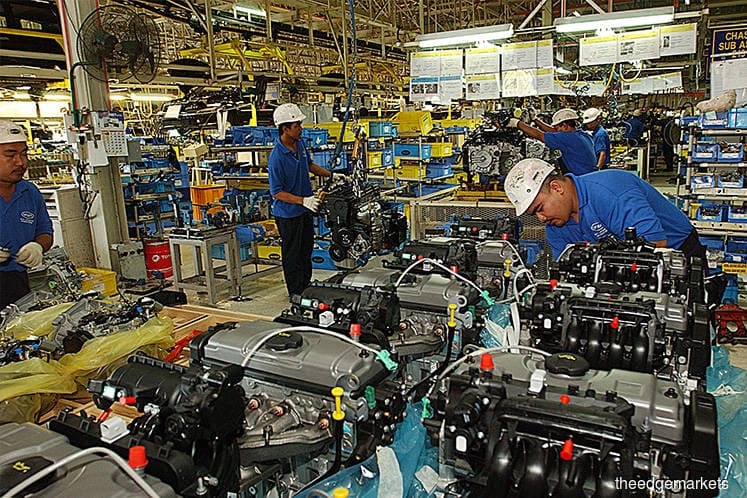
KUALA LUMPUR (June 12): Malaysia's industrial production index (IPI), which grew 4.6% year-on-year (y-o-y) — beating the market consensus of 4.4%, is seen to possibly normalise and slow down in the months ahead. This is in comparison to the IPI growth of 3.1% y-o-y in March.
In a note today, Affin Hwang Capital explained that the 4.6% y-o-y growth that is higher than the average 3.9% in the first quarter of 2018 is partly due to the low base effect in April 2017.
Nevertheless, Affin Hwang Capital believes IPI growth will remain supportive from higher demand for electrical and electronics (E&E) products, which was said to also be consistent with recent data released by the Semiconductor Industrial Association (SIA), where the global semiconductor sales continued to improve further, increasing by 20.2% y-o-y in April as compared to 20.1% in March.
However, the research house noted that the downside risk remains on the trade war tension between the US and other major economies, including China, the EU, Mexico and Canada.
"Looking at Malaysia's growth in exports and IPI for April, which expanded by a better-than-expected growth rate, we believe the weak trend seen in Malaysia's manufacturing purchasing manager index (PMI) will prove to be likely temporary," said the research house.
For 2018, Affin Hwang Capital is projecting Malaysia's economy to expand by 5.3% y-o-y, as compared to 5.9% in 2017, due to the higher base effect in 2017, but sees growth to continue being supported by strong domestic demand, with some moderation in export performance.
Meanwhile, CIMB Investment Bank Research, in a note yesterday, said the manufacturing recovery in Malaysia in April was broadly in line with the rebound regionally, including in Singapore, Thailand and South Korea.
However, the positive external momentum that has underpinned growth in the manufacturing sector thus far is expected to weaken, as demand from major economies and the global electronics cycle normalises.
"Moreover, we expect the government's cost rationalisation drive through operating expenditure cuts and cancellation of infrastructure projects to dampen investment growth, offsetting the expansionary effects on household spending from the goods and service tax (GST) cut, fuel subsidies and welfare transfers," said CIMB IB Research.